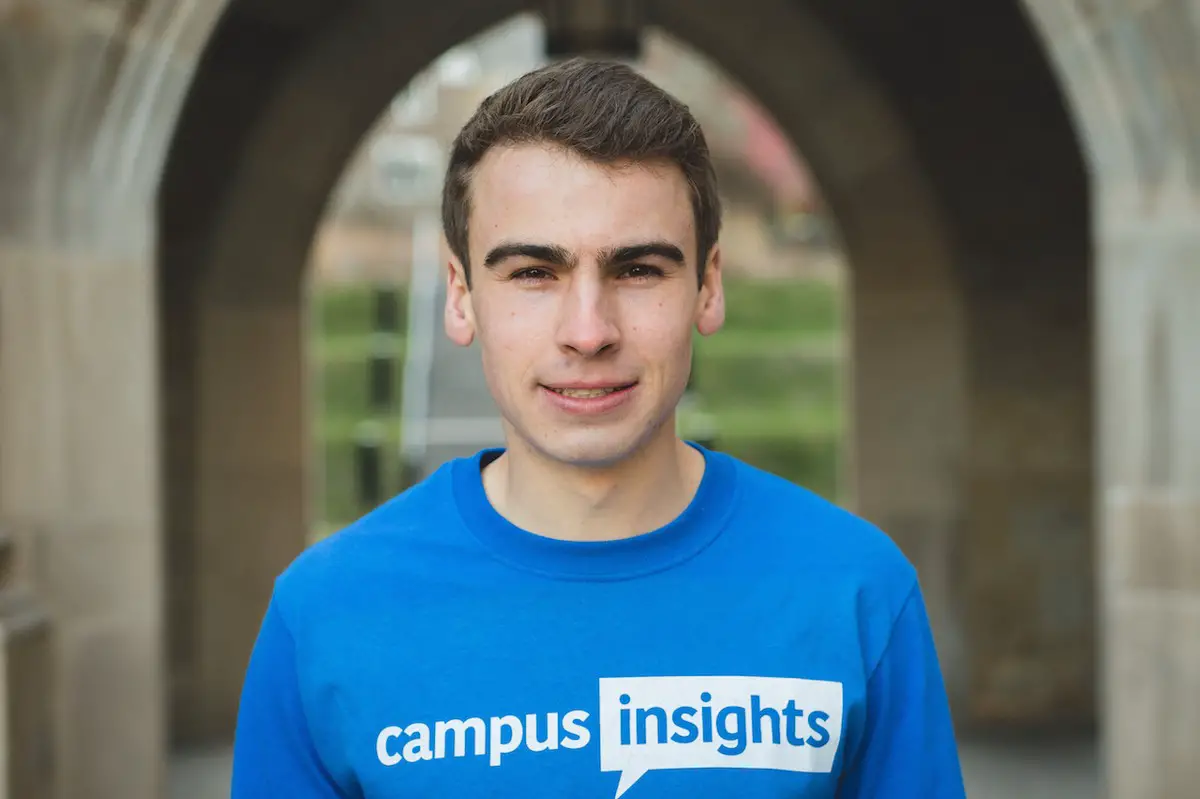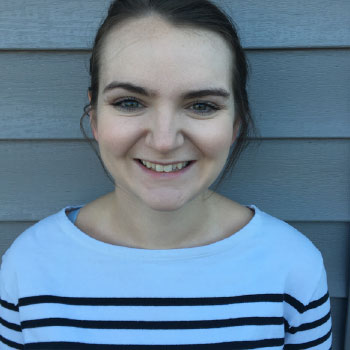During his freshman year at Boston College, Riley Soward was at a coffee shop with his friend, who is an app developer, when suddenly they got an idea: wouldn’t it be interesting to get direct feedback from students on various products via an app? Sure, any company could hold a research group and ask millennials what they think about a product, but wouldn’t a student be more comfortable with someone their own age asking the questions? It’s much easier for a student to open up about their thoughts to someone their own age. While companies want to market to college students, they first need to know how students think, why they like certain products and don’t like other ones. This is where Soward and his company, Campus Insights, come into play.
From a young age, Soward was always passionate about giving feedback on products. He would even e-mail companies with his specific feedback about their creation. In high school, Soward interned for an app focused on marketing toward other students, which he credits his interest in startups. So, once he got the idea to start a company that gets college students’ feedback on products, he and his brother Stephen decided to co-found Campus Insights.
Soward started small and went around Boston College and filmed students giving their thoughts on certain devices. Soward’s brother did the same thing at his school in Michigan. They would then send out all of the tapes to the different companies so the companies could further develop their products.
Now, Soward and his team conduct market research for numerous companies and it’s all done remotely via Skype.
“What’s good with remote is it’s pretty efficient,” Soward says.
Soward and his team conduct all the market research from start to finish including conducting the interview, writing the interview script and questions and giving the company their full analyses of the interview. By using Skype, they can interview any student in any part of the world, so they can provide a unique and diverse perspective to their clients. This way, they always have “the diversity element,” Soward says.
While his company was growing, Soward knew he had to expand and hire more employees to help him run it. However, Soward doesn’t hire just anyone to be a part of his team. His goal from the beginning was to build a business that’s sustainable and student-run.
“It works because it’s students interviewing students,” Soward said.
He took this vision and hired three more student employees to conduct research projects. With a growing business and school work, life can sometimes get pretty hectic for Soward, but he knows he makes the conscious decision to put his business before classes.
“In some cases, I’ve not focused as much academically, but that’s an active decision,” Soward says.
Soward considers Campus Insights as his top priority, even with the task of balancing his business with school work.
“For business majors, it’s easier to learn running a business while running a business,” Soward said.
While that’s not the answer that most parents would hope for, Soward views college as the best time to start a business because if all else fails, you still have a diploma to fall back on.
“College is a good time to start a business because you have a pretty big safety net,” Soward says. “It’s a time when you have a lot of free time to pursue what you want to pursue.”
So, what advice would Soward give other college students looking to start their own business? He remained grounded while answering this question and says that it’s all about two things: focus and execution.
The way Soward sees it, you have to remain focused while starting a business especially when you’re a college student and have a million other things on your plate. It’s easy to get carried away with your idea and the passion you have for that idea, so you have to remain focused on your mission and goal for your company.
While being focused is important, you wouldn’t have a business without executing your plans. While a lot of students have good ideas and can see where they want their company to go, they need the expertise to do it.
“At the end of the day, it’s all about the execution,” Soward said.
There is another crucial point to running a business that Soward stresses: founders get more credit than the workers. As a young CEO, Soward believes that it’s not the founders that should get all the credit, but rather the employees.
“Look at the history of Campus Insights and it’s been the people who joined the team that makes the business,” Soward said.
To Soward, it wasn’t him who really started Campus Insights or the one who made it such a successful company. But rather, it was his small team of hard-working students across the country that have made the company grow from the freshman running around with a video camera to the well-oiled machine it is today.
As for the future of Campus Insights, after Soward graduates in May, he says he has no desire to stop building his company. Soward is looking forward to building a strong community of students and alumni that are passionate about his company and its mission.
“My vision isn’t to graduate and peace out,” Soward said. “I want to build a strong community around this business that spans across generations of students.”

















